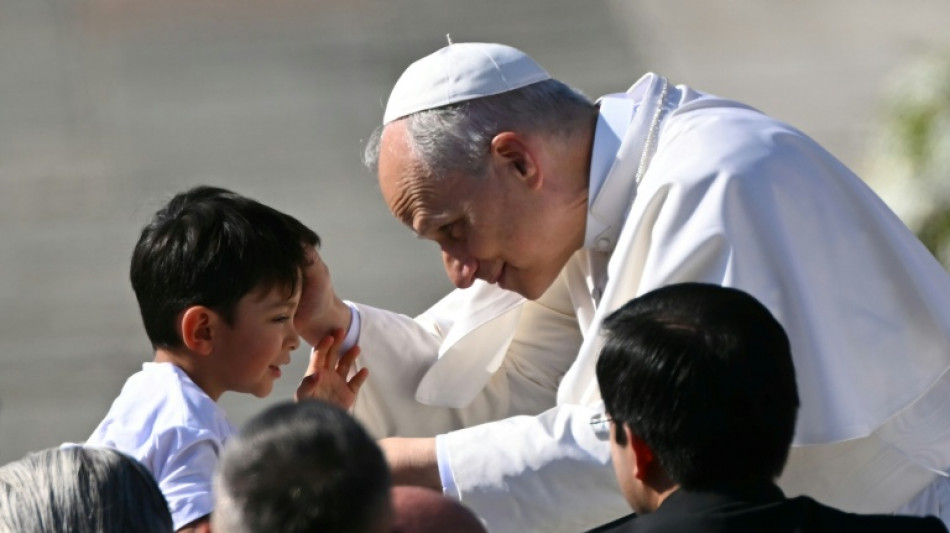
-
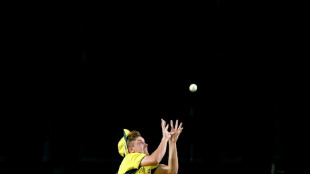 Australia's Green becomes most expensive overseas buy in IPL history
Australia's Green becomes most expensive overseas buy in IPL history
-
VW stops production at German site for first time

-
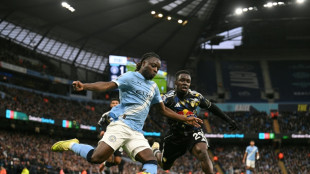 Man City star Doku sidelined until new year
Man City star Doku sidelined until new year
-
Rome's new Colosseum station reveals ancient treasures
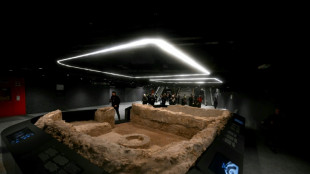
-
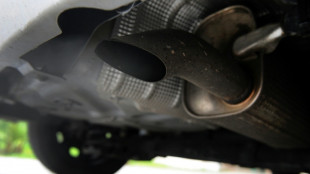 EU eases 2035 combustion-engine ban to boost car industry
EU eases 2035 combustion-engine ban to boost car industry
-
'Immense' collection of dinosaur footprints found in Italy
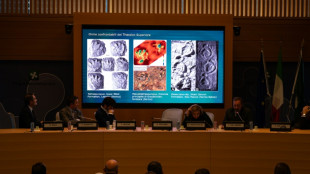
-
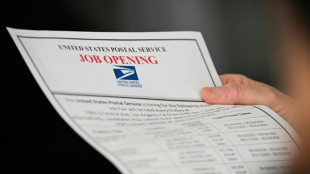 US unemployment rises further, hovering at highest since 2021
US unemployment rises further, hovering at highest since 2021
-
Senators grill Trump officials on US alleged drug boat strikes
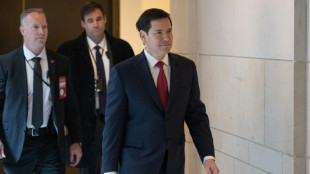
-
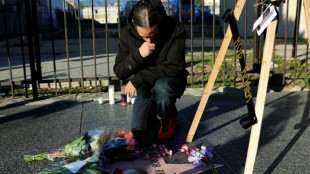 Filmmaker Rob Reiner's son to be formally charged with parents' murder
Filmmaker Rob Reiner's son to be formally charged with parents' murder
-
Shift in battle to tackle teens trapped in Marseille drug 'slavery'
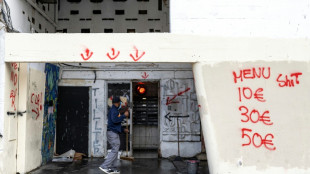
-
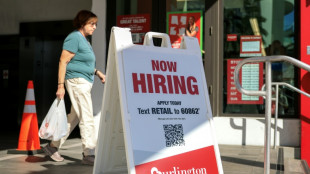 Stocks retreat on US jobs, oil drops on Ukraine hopes
Stocks retreat on US jobs, oil drops on Ukraine hopes
-
Manchester United 'wanted me to leave', claims Fernandes
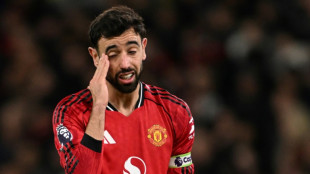
-
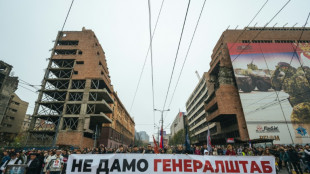 Serbian President blames 'witch hunt' for ditched Kushner hotel plan
Serbian President blames 'witch hunt' for ditched Kushner hotel plan
-
Man who hit Liverpool parade jailed for over 21 years
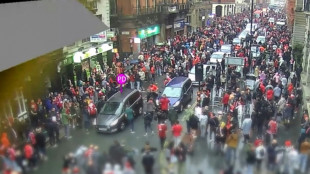
-
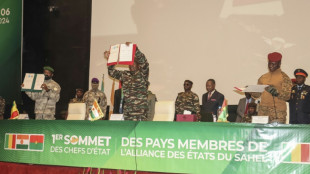 Sahel juntas would have welcomed a coup in Benin: analysts
Sahel juntas would have welcomed a coup in Benin: analysts
-
PSG ordered to pay around 60mn euros to Mbappe in wage dispute
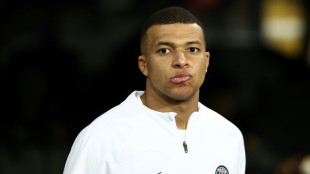
-
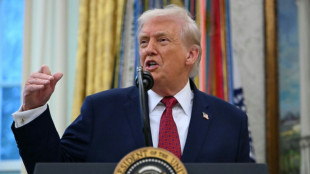 BBC says will fight Trump's $10 bn defamation lawsuit
BBC says will fight Trump's $10 bn defamation lawsuit
-
Stocks retreat ahead of US jobs, oil drops on Ukraine hopes
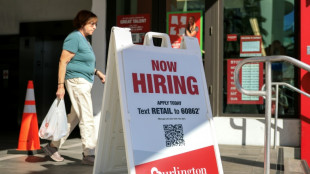
-
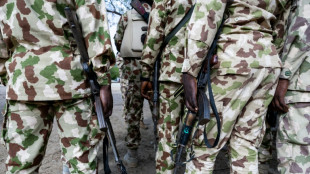 Suicide bomber kills five soldiers in northeast Nigeria: sources
Suicide bomber kills five soldiers in northeast Nigeria: sources
-
EU set to drop 2035 combustion-engine ban to boost car industry
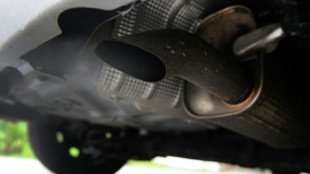
-
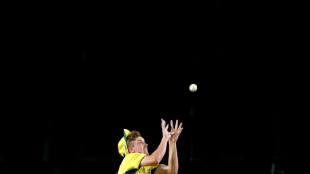 Australia's Green sold for record 252 mn rupees in IPL auction
Australia's Green sold for record 252 mn rupees in IPL auction
-
Elusive December sun leaves Stockholm in the dark
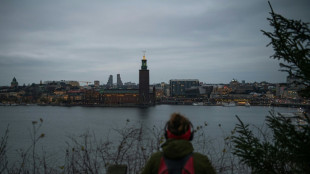
-
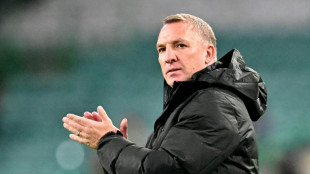 Brendan Rodgers joins Saudi club Al Qadsiah
Brendan Rodgers joins Saudi club Al Qadsiah
-
Thailand says Cambodia must announce ceasefire 'first' to stop fighting
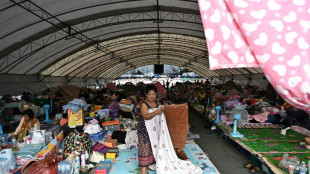
-
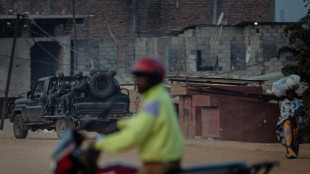 M23 militia says to pull out of key DR Congo city at US's request
M23 militia says to pull out of key DR Congo city at US's request
-
Thousands of glaciers to melt each year by mid-century: study
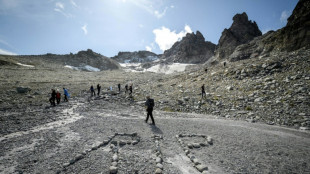
-
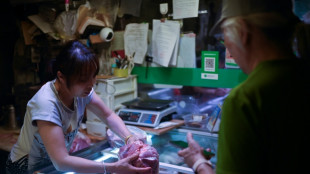 China to impose anti-dumping duties on EU pork for five years
China to impose anti-dumping duties on EU pork for five years
-
Nepal starts tiger census to track recovery

-
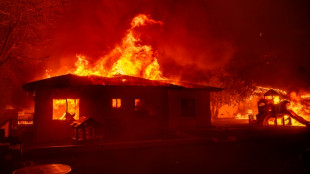 Economic losses from natural disasters down by a third in 2025: Swiss Re
Economic losses from natural disasters down by a third in 2025: Swiss Re
-
Indonesians reeling from flood devastation plea for global help

-
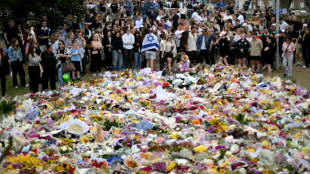 Timeline: How the Bondi Beach mass shooting unfolded
Timeline: How the Bondi Beach mass shooting unfolded
-
On the campaign trail in a tug-of-war Myanmar town
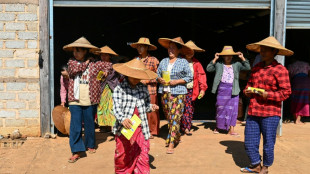
-
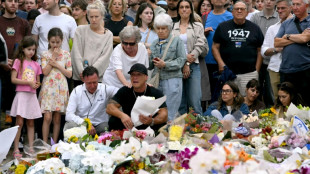 Bondi Beach suspect visited Philippines on Indian passport
Bondi Beach suspect visited Philippines on Indian passport
-
Kenyan girls still afflicted by genital mutilation years after ban
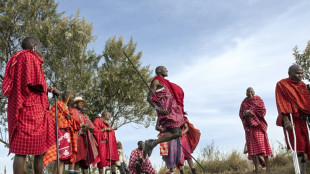
-
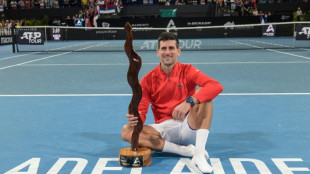 Djokovic to warm up for Australian Open in Adelaide
Djokovic to warm up for Australian Open in Adelaide
-
Man bailed for fire protest on track at Hong Kong's richest horse race
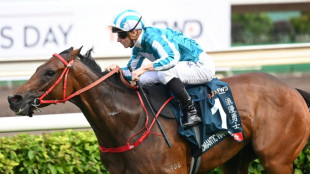
-
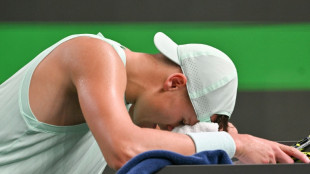 Men's ATP tennis to apply extreme heat rule from 2026
Men's ATP tennis to apply extreme heat rule from 2026
-
Cunningham leads Pistons past Celtics, Nuggets outlast Rockets

-
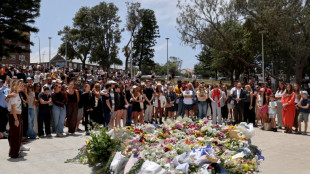 10-year-old girl, Holocaust survivors among Bondi Beach dead
10-year-old girl, Holocaust survivors among Bondi Beach dead
-
Steelers edge towards NFL playoffs as Dolphins eliminated

-
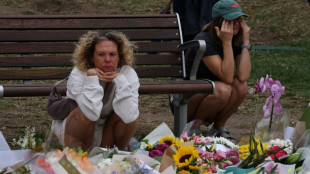 Australian PM says 'Islamic State ideology' drove Bondi Beach gunmen
Australian PM says 'Islamic State ideology' drove Bondi Beach gunmen
-
Canada plow-maker can't clear path through Trump tariffs
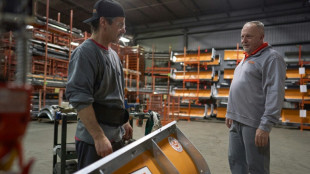
-
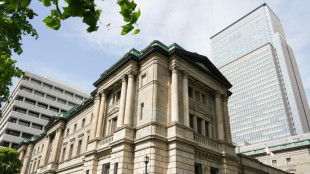 Bank of Japan expected to hike rates to 30-year high
Bank of Japan expected to hike rates to 30-year high
-
Cunningham leads Pistons past Celtics

-
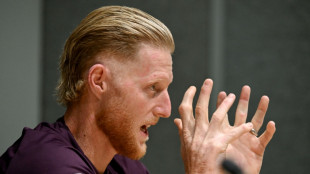 Stokes tells England to 'show a bit of dog' in must-win Adelaide Test
Stokes tells England to 'show a bit of dog' in must-win Adelaide Test
-
EU to unveil plan to tackle housing crisis
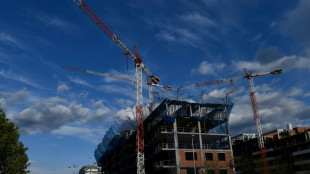
-
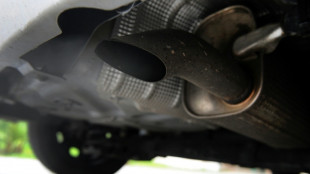 EU set to scrap 2035 combustion-engine ban in car industry boost
EU set to scrap 2035 combustion-engine ban in car industry boost
-
Australian PM visits Bondi Beach hero in hospital
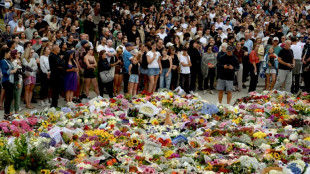
-
 'Easiest scam in the world': Musicians sound alarm over AI impersonators
'Easiest scam in the world': Musicians sound alarm over AI impersonators
-
'Waiting to die': the dirty business of recycling in Vietnam
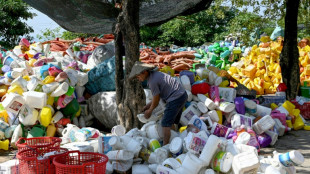
| CMSC | 0.21% | 23.35 | $ | |
| SCS | 0.12% | 16.14 | $ | |
| CMSD | -0.06% | 23.35 | $ | |
| BCC | 1.59% | 76.545 | $ | |
| NGG | -0.71% | 75.492 | $ | |
| RIO | 0.43% | 76.15 | $ | |
| BTI | -0.48% | 57.465 | $ | |
| RYCEF | -1.71% | 14.65 | $ | |
| GSK | -0.65% | 48.92 | $ | |
| AZN | -0.83% | 90.805 | $ | |
| RBGPF | 4.1% | 81 | $ | |
| VOD | 0.17% | 12.721 | $ | |
| RELX | -0.44% | 40.9 | $ | |
| BP | -3.59% | 34.03 | $ | |
| JRI | -0.17% | 13.537 | $ | |
| BCE | -0.25% | 23.55 | $ |

Pope Leo offers olive branch in allowing traditional mass
Pope Leo XIV has authorised a traditional mass to take place this weekend at the Vatican, lifting restrictions that angered conservatives in his latest attempt to heal splits within the Catholic Church.
The Tridentine or so-called Latin mass was commonly used across the Church before it was modernised in the 1960s, and was further limited by Pope Francis in 2021.
With Leo's approval, it will be celebrated in St Peter's Basilica at the Vatican on Saturday afternoon by ultraconservative US cardinal Raymond Burke, a fierce opponent of the late pontiff.
Conducted in Latin by a priest who keeps his back to the congregation, in a ceremony marked by the use of incense and Gregorian chants, the mass is preferred by many traditionalist Catholics.
Francis feared, however, that its use could undermine the legacy of the Second Vatican Council (1962-65), a series of reforms that sought to bring the Catholic Church into the modern era.
His papal decree restricting the use of the mass, "Traditionis Custodes", sparked anger among Catholic conservatives who felt they were being sidelined.
Pope Leo's move to allow the mass in the Vatican sends a "very strong signal to the conservative fringe", said Francois Mabille, head of France's Geopolitical Observatory of Religion.
The action of Leo suggests that "maybe the tensions within the church are stronger than we imagined a few months ago," he told AFP.
- Strategic balance -
Elected on May 8 following the death of Francis, Pope Leo faced a delicate mission bringing together a church of 1.4 billion followers deeply divided over social issues, from the role of women to the openness of the Church towards divorcees, gay faithful and migrants.
In his 12 years as pontiff, Francis often irritated conservatives with his decisions, especially in the United States. Burke, who will lead Saturday's mass, was one of the Argentine pope's strongest critics.
Leo has pursued many of the policies favoured by his predecessor, highlighting the need to help the poor and marginalised and to protect the environment.
When the Vatican welcomed an LGBTQ+ pilgrimage as part of the church's Jubilee year in September, critics renewed their attacks on the Holy See's "ideological drift".
But Leo has also given ground to conservatives.
He named Guinean Cardinal Robert Sarah, who considers immigration a threat to Europe's Christian identity, as a special envoy to a pilgrimage in France.
And the return of the Tridentine mass to the Vatican is also "a gesture of appeasement," said Martin Dumont, a historian and secretary general of the Research Institute for the Study of Religions.
It signals that "everyone is a part of the Church -- all sides must be accepted and received", he told AFP.
Leo "would like to meet Catholic groups who want this form of rite" to understand their motives, said Dumont, adding: "He is a man of peace, attentive to others."
Leo appears to be sending the message that the traditional mass has a place, as long as it does not threaten the legacy of the Vatican II reforms.
But the line between liturgy and politics is fraught.
In an interview published in September, Leo acknowledged that the debate over the mass was "very complicated" and had become part of the "polarisation" within the Church.
"Some have used the liturgy as a pretext to advance other subjects. It has become a political tool and that is very regrettable," he said.
X.Karnes--AMWN